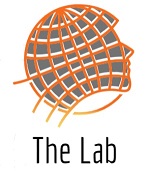UCM SSC3056 Innovation Systems, Policy and Sustainability Transitions
Coordinator(s): Dr. Serdar Türkeli and Dr. Pui-hang Wong
e-mail: turkeli@merit.unu.edu ; wong@merit.unu.edu
Course Information:
Semester Period Spring 5 ECTS Concentration 5 Social Sciences
Prerequisite(s):
SSC1017 Principles of Economics OR SCI1016 Sustainable Development: An Introduction
Recommended:
At least two 2000-level Social Sciences courses
Description of the Course:
The issues, that the political economic systems create while moving forward with a multitude of attempts in structuring our everyday lives and possible futures, continue to systematically socialize negative economic, environmental and social impacts over us and the world society. Much needed global societal transition towards alternative settings calls for a comprehensive understanding and the analysis of the working of multi-scalar socio-technical systems and transitions. Accelerating the evolutionary scientific, technological, social and environmental sustainability transitions towards alternative societal futures require a holistic, interdisciplinary and critical know-how which will be introduced by a set of lectures and enhanced by participatory discussions. Lectures and discussions are supplemented by optional multi-method research, entrepreneurial mentoring, critical advocacy and evidence-based policy writing. After completing this course, participants will acquire working knowledge on ideas, interests, and institutions of societal relevance and be able to design new actions or policies for change making, via varieties of innovations, transitions, systems, economies, contexts, for sustainability outcomes.
Overview of the objectives of the course:
To gain interdisciplinary, critical and working knowledge for the analyses of:
Varieties of innovations, systems of innovation and sustainability transitions from political economic and societal perspectives, which integrate economic, social, environmental, as well as policy perspectives, in particular, from a selection among the topics of:
-
Innovations (e.g. technological, organisational, social, environmental innovations),
-
Systems (e.g. national, regional, technological, socio-technical systems),
-
Entrepreneurships (e.g. technological, social, environmental, policy entrepreneurship),
-
Transitions (e.g. technological, socio-technical, sustainability, societal, system transitions),
-
Transitions from a human perspective (e.g. bureaucratization, marketization, humanization and outcomes (e.g. agency, happiness, well-being, quality of life).
-
Alternative economies (e.g. circular economy, social economy, digital economy, bio-economy, sharing economy).
-
Policy analysis and design (e.g. positivist and post-positivist turn in policy)
To acquire an evidence-based approach for different policy analysis and design styles, and formulation techniques on how to write a change brief in practice as a final paper.
Course manual : Download
Course Output:
 Calls for Change – Volume 2 | 2020
Calls for Change – Volume 2 | 2020
A much needed global societal transition towards alternative settings calls for a comprehensive understanding and the analysis of the forms and functioning of various multi-scalar socio-technical systems and transitions. Accelerating the evolutionary scientific, technological, social and environmental sustainability transitions towards alternative societal futures require a holistic, interdisciplinary and critical know-how. In this book, you can read about various sustainability issues and solution approaches.



